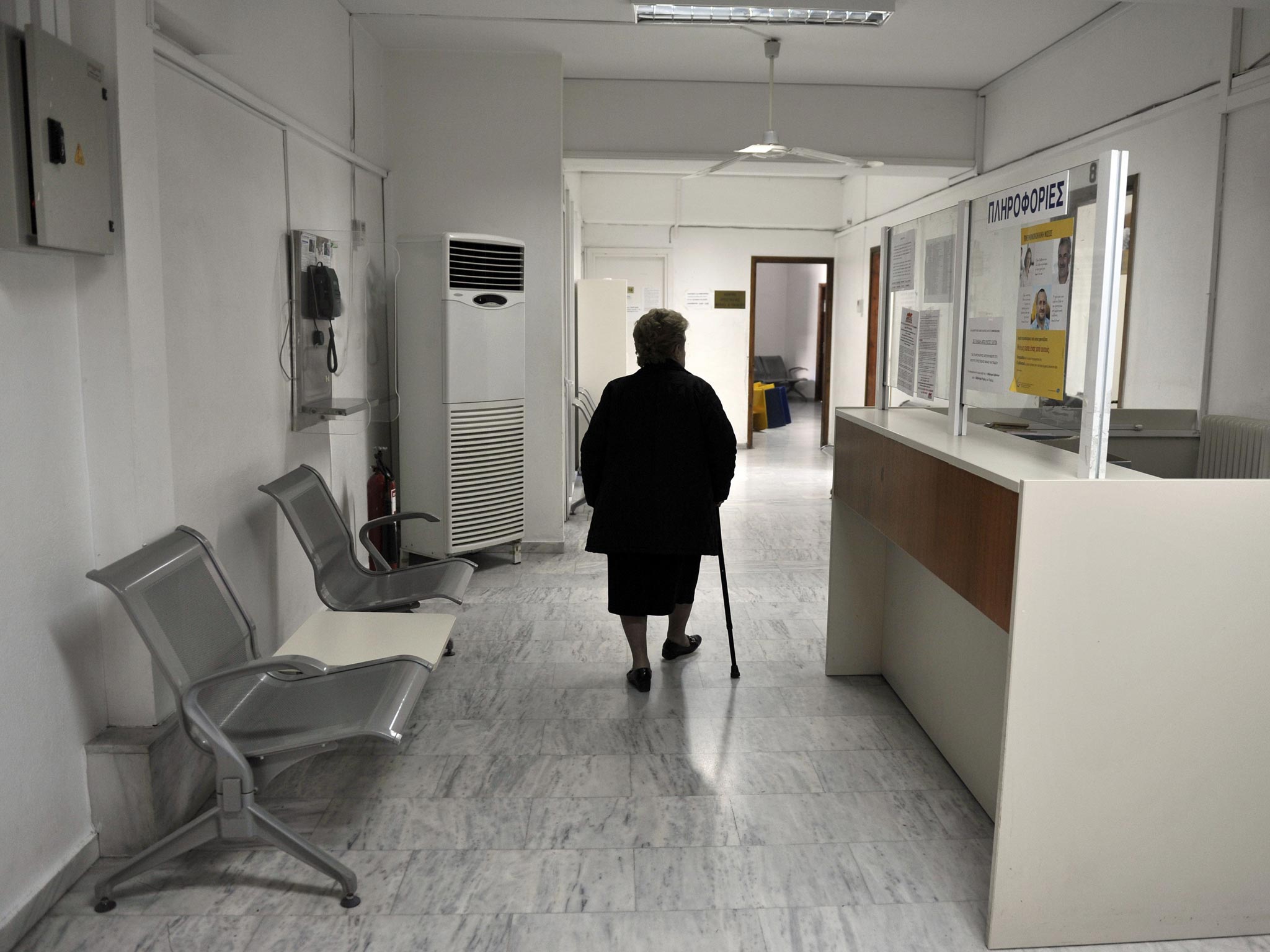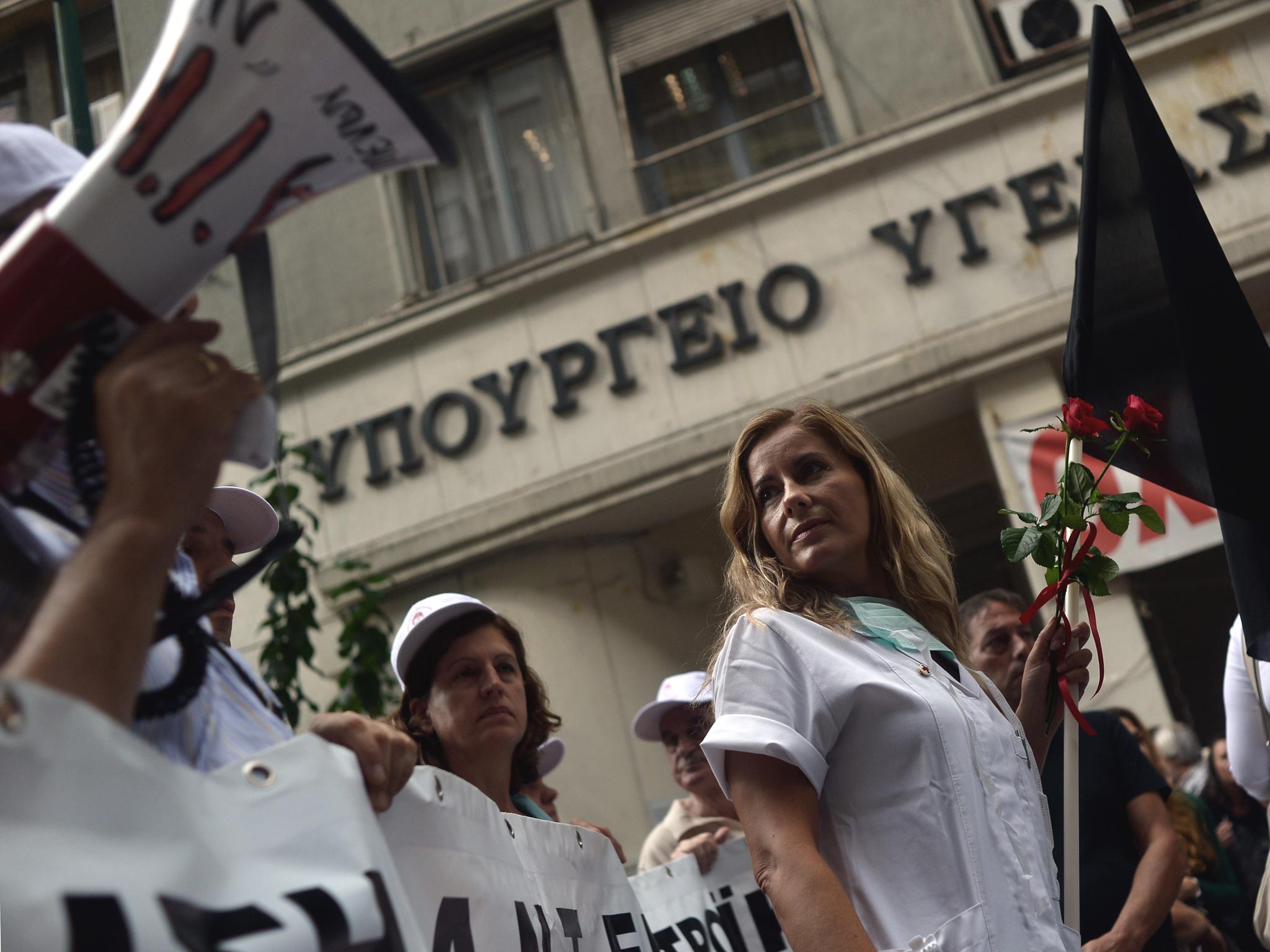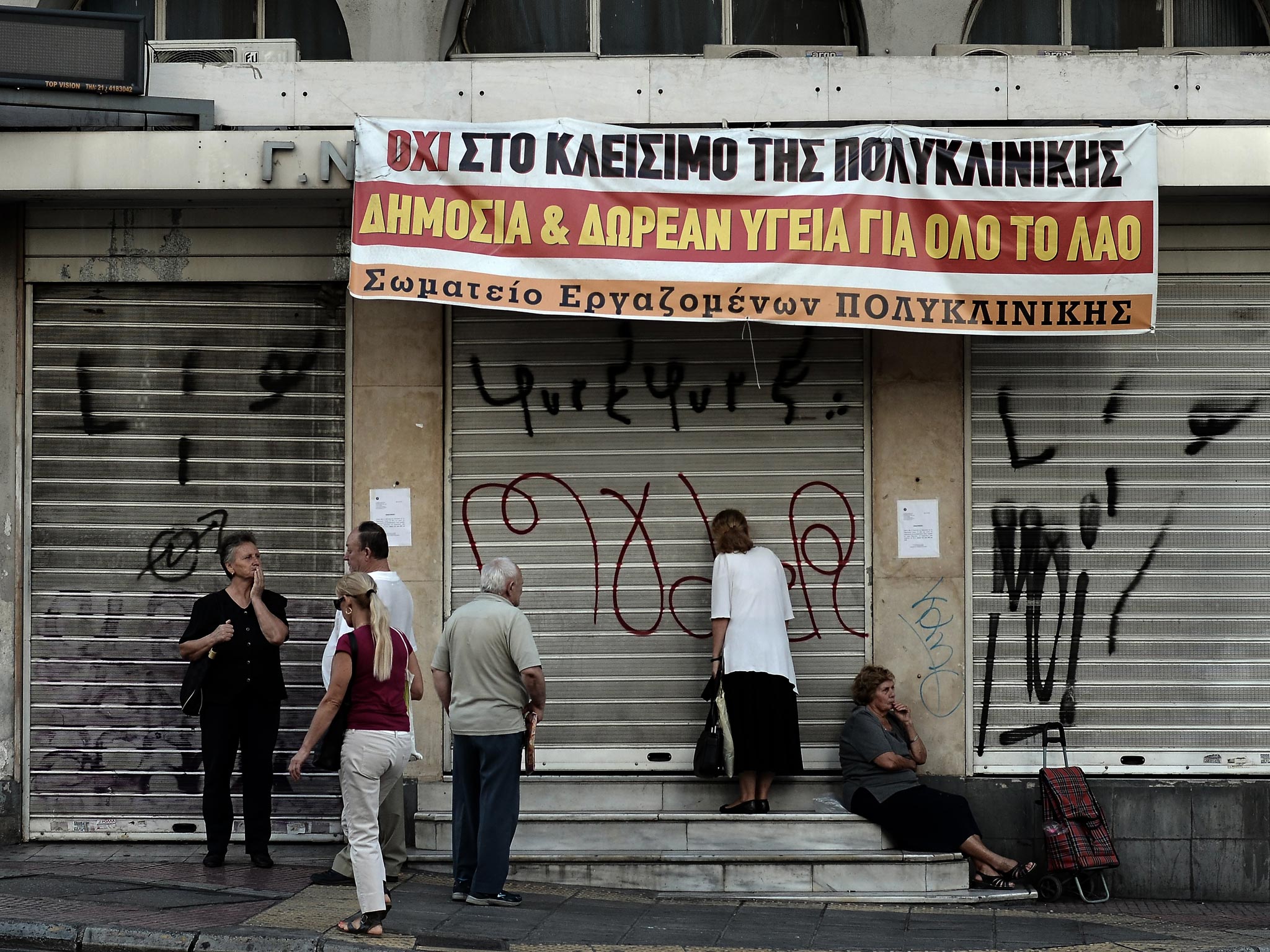Tough austerity measures in Greece leave nearly a million people with no access to healthcare, leading to soaring infant mortality, HIV infection and suicide

Austerity measures imposed by the Greek government since the economic crisis have inflicted “shocking” harm on the health of the population, leaving nearly a million people without access to healthcare, experts have said.
In a damning report on the impact of spending cuts on the Greek health system, academics found evidence of rising infant mortality rates, soaring levels of HIV infection among drug users, the return of malaria, and a spike in the suicide count.
Greece’s public hospital budget was cut by 25 per cent between 2009 and 2011 and public spending on pharmaceuticals has more than halved, leading to some medicine becoming unobtainable, experts from Oxford, Cambridge and the London School of Hygiene and Tropical Medicine (LSHTM) said.
Rising unemployment in a country where health insurance is linked to work status has led to an estimated 800,000 people lacking either state welfare or access to health services and in some areas international humanitarian organisations such as Médecins du Monde have stepped in to provide healthcare and medicines to vulnerable people.
The report, which is published today in the medical journal The Lancet, accuses the Greek government and the international community – which demanded swingeing cuts as a condition of bailing out the Greek economy during the debt crisis between 2010 and 2012 – of being “in denial” about the scale of hardship inflicted on the Greek people.

“The cost of austerity is being borne mainly by ordinary Greek citizens, who have been affected by the largest cutbacks to the health sector seen across Europe in modern times,” said senior author Dr David Stuckler, of Oxford University. “We hope this research will help the Greek government mount an urgently needed response to these escalating human crises.”
Greece was forced to make massive cutbacks to meet the terms of twin bailout packages, totalling €240 billion, offered by the European Commission, the European Central Bank and the International Monetary Fund, known as the Troika. Health spending was capped at six per cent of GDP.
Analysis of figures from the EU Statistics on Income and Living Conditions survey revealed a leap in the number of people with unmet health needs, the authors said. The cost of healthcare has been significantly shifted away from the state and towards patients, with new fees for prescriptions introduced and charges for out-patient visits to hospital raised from €3 to €5 .
Government disease prevention schemes have also been rolled back leading to the resurgence and revival of once rare infectious diseases – including malaria, which has returned to Greece for the first time in 40 years.
“There are a whole series of infectious diseases which have been kept at bay over the past 50 or 60 years by strengthened public health efforts,” Martin McKee, professor of European public health at LSHTM and one of the report’s co-authors, told The Independent. “If you lift up your guard, as the Greek example shows, they can very easily exploit those changes.
“The experience of Greece demonstrates the necessity of assessing the health impact of all policies carried out by national governments and by the European Union.”

Prevention and treatment programmes for illicit drug users faced major cuts, with a third of street work programmes halted in 2009-10, the first year of austerity. Reductions in the numbers of syringes and condoms distributed to known drug users has led directly to a spike in the rate of HIV infections in this community, the report said – from just 15 in 2009 to 484 in 2012.
Although reliable data on the health impact on the wider population will take several years to emerge, the Greek National School of Public Health reported a 21 per cent rise in stillbirths between 2008 and 2011, which was attributed to reduced access to prenatal services, and infant mortality also rose by 43 per cent between 2008 and 2010.
The suicide rate has gone up from around 400 in 2008 to nearly 500 in 2011.
Alexander Kentikelenis, researcher in sociology at the University of Cambridge and the report’s lead author, said that the Greek welfare state had “failed to protect people at the time they needed support the most.”
“What’s happening to vulnerable groups in Greece is quite shocking,” he told The Independent. “It’s quite straightforward to measure what has happened, it’s much harder to quantify the long-term health implications for the long-term unemployed and uninsured…Leaving health problems to get out of hand ends up costing a state much more in the long run.”
The Greek Ministry of Health and Social Solidarity did not respond to a request for comment.
Case study
The Metropolitan Community Clinic at Helliniko in Athens was founded in December 2011. It is run by volunteer doctors and provides free healthcare to people without medical insurance
Co-founder Christos Sideris told The Independent: “The healthcare situation in Greece is, unfortunately, dramatic. We have helped more than 4,400 patients, with more than 20,300 appointments in 26 months of operation. We look after more than 300 children below the age of three, and have helped 126 cancer patients to receive chemotherapy, in collaboration with a public hospital. This is not done in an official capacity, but by the people working there, every Wednesday after working hours, with donated medicines.
We have three basic rules: we accept no money from anyone, we have no party politics, and we do not advertise anyone for the help they are offering us. We only accept money from our own volunteers – there are 250 of them at the moment. These volunteers do fundraisers and give money to the clinic. The local municipality also helps us. Our medicines are all donated. There are more than 40 community clinics and pharmacies like us across Greece. They cannot solve the problem – we’re only here because there is a need for us to exist. We cannot substitute a public health system and we do not want to.”
Join our commenting forum
Join thought-provoking conversations, follow other Independent readers and see their replies
Comments